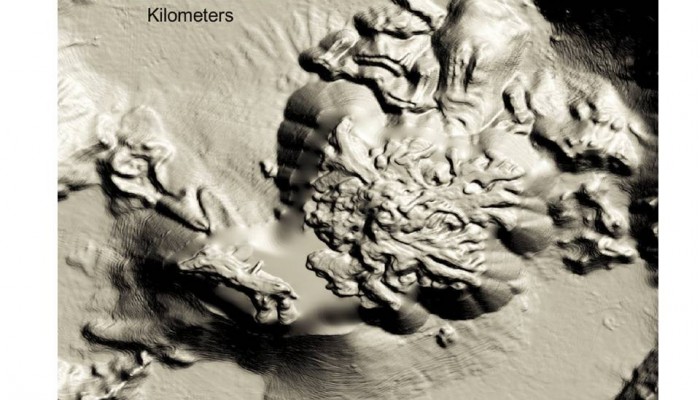Jane Robb is the EGU Educational Fellow and Director (Policy and Research) at www.unboxd.co.uk. She has also served on the GfGD Executive Committee since 2012, first as our Communications Officer and currently as University Group Resources Officer – helping to develop resources to equip our growing University Group network. Today she writes about her recent experiences in South Africa, and t ...[Read More]
VolcanicDegassing
‘An amazing and portentous summer..’
Book review: Island on Fire, Alexandra Witze and Jeff Kanipe In Island on Fire, Alexandra Witze and Jeff Kanipe take the reader on a dramatic tour of volcanic eruptions, death and destruction. At its heart is the story of the great 1783-1784 Laki fissure eruption, one of the most significant historical eruptions of Iceland, which belched 120 million tonnes of sulphur dioxide into the atmosphere, a ...[Read More]
Green Tea and Velociraptors
It’s beyond time we ditched the impact factor
“I am sick of impact factors and so is science.” Stephen Curry said it best back in 2012. The impact factor is just one of the many banes of academia, from it’s complete misuse to being falsely inflated by publishers. I want to draw attention to a new article that addresses the causes behind this ‘impact factor mania’ that academia has. The article is quite right to ...[Read More]
Green Tea and Velociraptors
The Cambridge Science Festival
Last night, I was honoured to have spoken at the final evening lecture at the Cambridge Science Festival, along with Nick Crumpton, Anjali Goswami, Rob Asher, and Stephanie Pierce, about why palaeontology is important. Below is a rough transcript of some of what my talk was about. Unlike the others, I didn’t discuss my own research. Instead, by general gist was that although palaeontology is ...[Read More]
Geology for Global Development
Friday Photo (120) – Pacaya Lava Flows
Basaltic Lava Flows From the Eruption of Pacaya, Guatemala, in 2010 (Credit: Joel Gill, 2014) (This image, and others taken in Guatemala, is available for free use (subject to terms and conditions) from the EGU Image Repository)
Geology Jenga
Some personal perspectives from a PhD student on the peer-review system
This is a follow-up to a previous post from September 2013 entitled ‘Soliciting peer reviews from PhD students’. In that piece, I summarised the responses I’d received from a number of editors of peer-reviewed journals in the field of Quaternary Science having asked them their feelings on soliciting peer reviews from PhD students. Some recent events, most significant being the acceptance of my fir ...[Read More]
Green Tea and Velociraptors
Steampunk takes evolution to the next level
Sharing this purely because it’s amazing. Hat-tip to John Hutchinson for sharing!
VolcanicDegassing
Growth of the Kameni Islands Volcano, Santorini, Greece
A new paper, published in the journal GeoResJ, reveals the intricate details of the volcanic Kameni islands that lie in the flooded caldera of Santorini, Greece. The Kameni islands started growing shortly after the explosive eruption that formed much of the present day caldera. For the past 3500 years or so these islands have grown in pulses, with each new eruption adding more material to the edif ...[Read More]
Geology for Global Development
Field Research in Guatemala (5) – Photo Diary
After 2 months based in Guatemala undertaking hazards research, I am soon to return home. I will be continuing this series of posts over the next few months, reflecting on aspects of conducting research overseas and thinking through results. Guatemala is a stunningly beautiful country, with a dynamism reflected in everything from the landscapes to the markets. Everybody I have met has been incredi ...[Read More]
Between a Rock and a Hard Place
Tolbachik – a mineralogist’s paradise
Tolbachik is a basaltic volcanic massif lying at the southern end of the Kliuchevskoi group in Kamchatka, Russia. It comprises two overlapping cones: Plosky Tolbachik, a Holocene shield volcano extending to 3 km in diameter; and the older (Pleistocene) Ostry Tolbachik, a sharp-topped stratovolcano reaching some 3,700 m in height. Eruptions in 1975-76 and 2012-2013 occurred along rift zones situate ...[Read More]

